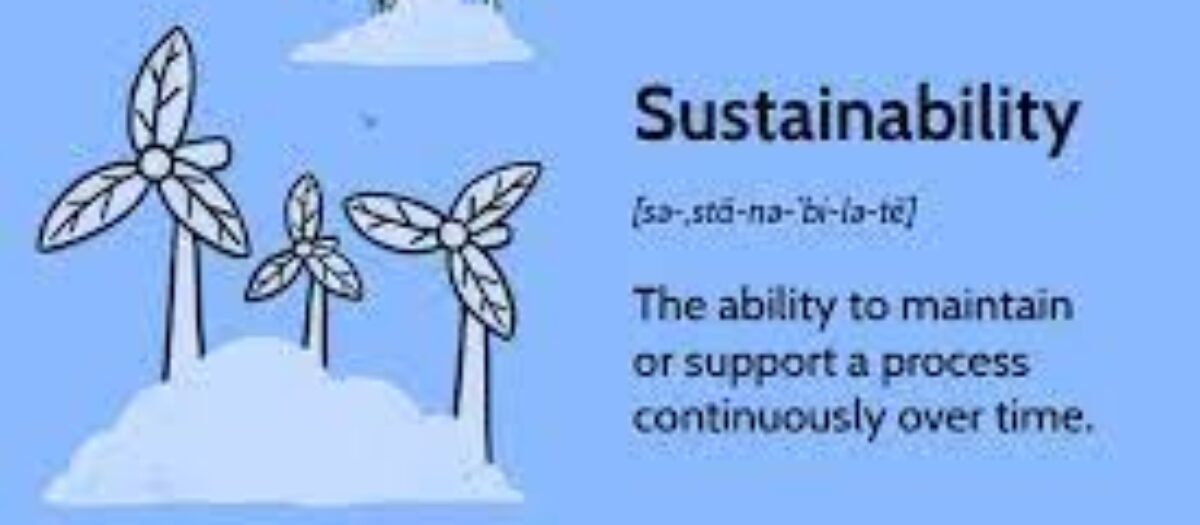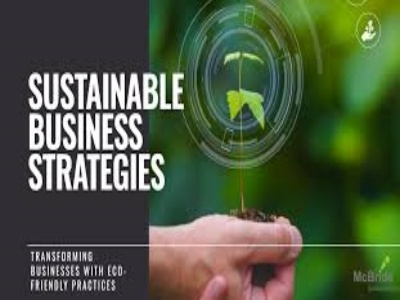Sustainability
Can be taken to mean the ability of meet our present or contemporary needs without affecting or hampering the ability to meet the needs of the future generation. Meaning that we should think sustainably when we are able to satisfy today`s needs affecting the possibility of tomorrow’s generations from meeting theirs as well. Sustainability prompts a deliberate decision and a decisive action when considering the impact on social, economic, and environmental systems in the long term. Most often, sustainability is seen through three lenses that are often referred to as the triple bottom line. Talking about the interconnectedness between the environment, economy, and social components of our existence.
The aspects that constitute sustainability (the Triple Bottom Line)
Environmental Sustainability: This simply means using the environmental resources creatively today and also innovatively positioning these resources for the betterment of the tomorrow`s generation. Doing these involves the preservation of the ecosystem, a reduction in pollution, and the minimization of the already depleted natural resources. This is linking it to sustainable practices like: practical renewable energy use, effective management and reduction of wastes, and effectively conserving the different varieties of living things, below and above the land.
Social Sustainability: This emphasizes the creation of an atmosphere that encourages and promotes social equality (equity), justice for all, equal access, all-rounded inclusivity, and general well-being for today`s and tomorrow`s generations. This, however, goes deeper to emphasize the dimension that considers our general decision-making and the impact it has on our communities and societies as it relates to the legitimate rights conferred no humans (human rights), accepting and identifying with all the positive segments of society (social and cultural diversity), and irrespectively opening the door for anyone to aspire and dream to achieve (social inclusiveness). Simply put, social sustainability seeks to create equal and just societies and communities that integrate and prioritize human respect and dignity while also promoting continuity and interrelationships.

Economic Sustainability: This is advocating for a systematic and innovative approaches to managing all economic activities that will support long-term achievements and developments, but not at the detriment of the environment and communities/societies. Economic sustainability goes on to underscore the importance of sustainable practices, which include responsibility in all business activities and practices. Just trade the systems of economic activities and put into consideration the long-term resilience and stability of economic endeavors.
Sustainability advocates most often represent the full concepts of sustainability in a Venn diagram, which represents the interconnectedness of the three components of environmental, social, and economic sustainability. The main objective is to actually strike a balance that will ensure the highest attainable well-being for the present without impeding the capacity and ability of the future generation to achieve theirs.
Here are the major takeaways and points to note with sustainability:
- Sustainable Means: Using the different means and resources that are renewable and can be cleanly replenished with time, e.g., The use solar energy or wind power.
- The Effective and Efficient Use of Resources: The ability to reduce waste, enhance the use of these resources, and adopting technologies that will reduce the impact of development on the environment.
- Social Equality: Making sure that benefits and burdens attributed to social development are shared equitably and human rights, equality, as well as social justice are top considerations.
- Economic Sustainability: Work towards the establishment of pure economic systems that can be economically reliable on a long-term basis and help facilitate improved overall social well-being.
- Interconnectedness of Systems: Acknowledging the relationships between the environment, social, and economic aspects of sustainability, and with a complete understanding that the activity in any of those aspects can have an adverse impact on the others.
Finally, the concept of sustainability is very important in helping to address some of the complex global challenges, e.g., climate change, inequality, poverty, business, governments, as well as organizations. And knowing that most entities are becoming increasingly aware and are making efforts to incorporate sustainable practices into their activities with a view to increasing human wellness.




Sustainability Threat: Combatting Corruption In Nigeria - A Critical Analysis
January 22, 2024 @ 4:23 pm
[…] Check Out: The Concept of Sustainability: A Path to Global Wellness. […]